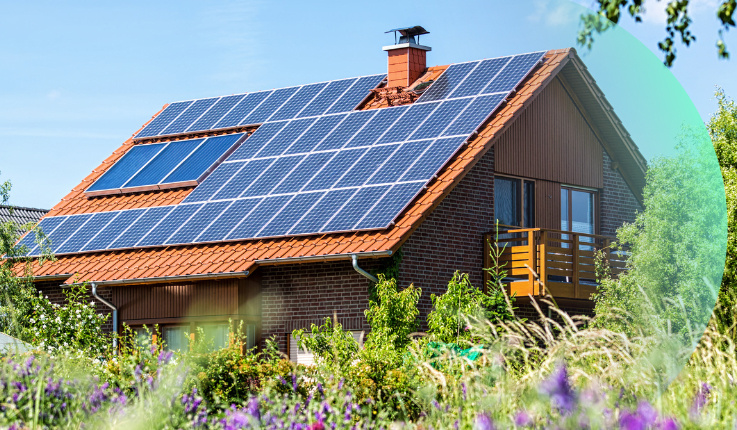The Future of Energy: Artificial Intelligence and Smart Homes
Can you imagine coming home and having the lights turn on automatically or the temperature adjusting itself?
It's just part of what smart homes can do thanks to artificial intelligence (AI).
This is just part of what smart homes can do thanks to artificial intelligence (AI). The technological revolution is transforming the way we consume and manage energy in our homes. They are also transforming the way we consume and manage energy in our homes.
What are smart homes?
Smart homes are spaces that, through internet-connected devices, automate everyday tasks and optimize energy use. These systems, such as thermostats and smart lighting systems, learn from our habits and adjust their operation to be more efficient.
The importance of artificial intelligence in smart homes.
Artificial intelligence is key for smart homes to accurately and efficiently adapt to our daily needs. In addition, AI integrates machine learning algorithms and data analysis that helps our smart home to:
- Learn from our behaviors: It can analyze how and when users use certain devices, enabling personalization that maximizes comfort and efficiency. For example, a smart thermostat can automatically adjust the temperature based on our daily routines.
- Optimize energy consumption: By analyzing real-time data, AI systems can identify consumption patterns and suggest changes that result in more efficient energy use. This not only reduces costs, but also minimizes environmental impact.
Benefits and challenges of AI in energy management.
Benefits
1. Cost savings
By optimizing energy consumption, users can significantly reduce their electricity bills. For example, an AI system can automatically program devices to run during off-peak hours, when energy prices are lower.
2. Sustainability and carbon footprint reduction
By encouraging efficient energy use and promoting the use of renewable energy, these systems help decrease dependence on fossil fuels and reduce greenhouse gas emissions.
3. Convenience and control
Smart homes allow users to have total control over their environment. From adjusting the temperature to turning on the lights with simple voice commands or through a mobile app, the technology provides an unparalleled user experience. This translates to a more comfortable daily life tailored to individual preferences.
Challenges and considerations
1. Security and privacy
With an increase in device connectivity, the risk of cyberattacks also increases. It is critical for technology manufacturers to adopt robust security measures to protect user data and ensure a secure environment.
2. Initial investment cost
While in the long run smart homes can result in savings, the upfront investment in technology and devices can be significant.
3. Learning curve
The adaptation to smart home technology can present a learning curve, especially for those unfamiliar with the technology. Providing training and technical support is critical to help users become familiar with this technology and take advantage of all its functionalities.
The future of smart homes and energy
As technology continues to evolve, we are likely to see even greater integration of artificial intelligence into smart homes. The energy of the future will not only be about renewable sources, but about intelligent management that maximizes efficiency and minimizes waste.
After all, the energy of the future will not only be about renewable sources, but about smart management that maximizes efficiency and minimizes waste.
Some of the emerging trends include:
- Adaptive energy devices: Equipment that adjusts its operation based on environmental conditions, achieving greater energy efficiency.
- Blockchain integration: Improves control of energy consumption and facilitates the sale of surpluses between users in a secure manner.
- Energy management platforms: tools that use AI to analyze and forecast consumption patterns, enabling users to make informed decisions about their energy use.
The future of energy is closely tied to the evolution of smart homes and artificial intelligence. These innovations promise to improve energy efficiency and contribute to a more sustainable world.
Visit our blog to learn more about how technology is transforming the world of energy.



























